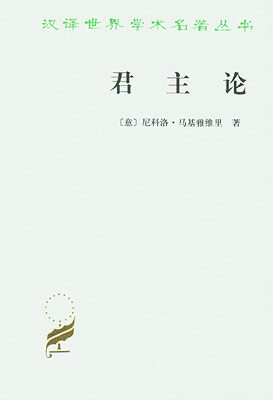君主论-the prince(英文版)-第21章
按键盘上方向键 ← 或 → 可快速上下翻页,按键盘上的 Enter 键可回到本书目录页,按键盘上方向键 ↑ 可回到本页顶部!
————未阅读完?加入书签已便下次继续阅读!
ause you assist at the destruction ofone by the aid of another who; if he had been wise; would have savedhim; and conquering; as it is impossible that he should not with yourassistance; he remains at your discretion。 And here it is to be notedthat a prince ought to take care never to make an alliance with one morepowerful than himself for the purpose of attacking others; unlessnecessity pels him; as is said above; because if he conquers you areat his discretion; and princes ought to avoid as much as possible beingat the discretion of any one。 The Veians joined with France againstthe Duke of Milan; and this alliance; which caused their ruin; couldhave been avoided。 But when it cannot be avoided; as happened to theFlorentines when the Pope and Spain sent armies to attack Lombardy; thenin such a case; for the above reasons; the prince ought to favour one ofthe parties。Never let any Government imagine that it can choose perfectly safecourses; rather let it expect to have to take very doubtful ones;because it is found in ordinary affairs that one never seeks to avoidone trouble without running into another; but prudence consists inknowing how to distinguish the character of troubles; and for choice totake the lesser evil。A prince ought also to show himself a patron of ability; and to honourthe proficient in every art。 At the same time he should encourage hiscitizens to practise their callings peaceably; both in merce andagriculture; and in every other following; so that the one should not bedeterred from improving his possessions for fear lest they be taken awayfrom him or another from opening up trade for fear of taxes; but theprince ought to offer rewards to whoever wishes to do these things anddesigns in any way to honour his city or state。Further; he ought to entertain the people with festivals and spectaclesat convenient seasons of the year; and as every city is divided intoguilds or into societies; he ought to hold such bodies in esteem; andassociate with them sometimes; and show himself an example of courtesyand liberality; nevertheless; always maintaining the majesty of hisrank; for this he must never consent to abate in anything。CHAPTER XXIICONCERNING THE SECRETARIES OF PRINCESTHE choice of servants is of no little importance to a prince; and theyare good or not according to the discrimination of the prince。 And thefirst opinion which one forms of a prince; and of his understanding; isby observing the men he has around him; and when they are capable andfaithful he may always be considered wise; because he has known how torecognize the capable and to keep them faithful。 But when they areotherwise one cannot form a good opinion of him; for the prime errorwhich he made was in choosing them。There were none who knew Messer Antonio da Venafro as the servant ofPandolfo Petrucci; Prince of Siena; who would not consider Pandolfo tobe a very clever man in having Venafro for his servant。 Because thereare three classes of intellects: one which prehends by itself;another which appreciates what others prehend; and a third whichneither prehends by itself nor by the showing of others; the first isthe most excellent; the second is good; the third is useless。 Therefore;it follows necessarily that; if Pandolfo was not in the first rank; hewas in the second; for whenever one has judgment to know good or badwhen it is said and done; although he himself may not have theinitiative; yet he can recognize the good and the bad in his servant;and the one he can praise and the other correct; thus the servant cannothope to deceive him; and is kept honest。But to enable a prince to form an opinion of his servant there is oest which never falls; when you see the servant thinking more of hisown interests than of yours; and seeking inwardly his own profit ineverything; such a man will never make a good servant; nor will you everbe able to trust him; because he who has the state of another in hishands ought never to think of himself; but always of his prince; andnever pay any attention to matters in which the prince is not concerned。On the other to keep his servant honest the prince ought to study him;honouring him; enriching him; doing him kindnesses; sharing with him thehonours and cares; and at the same time let him see that he cannot standalone; so that many honours not make him desire more; many riches makehim wish for more; and that many cares may make him dread changes。 When;therefore; servants; and princes towards servants; are thus disposed;they can trust each other; but when it is otherwise; the end will alwaysbe disastrous for either one or the other。CHAPTER XXIIIHOW FLATTERERS SHOULD BE AVOIDEDI DO NOT wish to leave out an important branch of this subject; for itis a danger from which princes are with difficulty preserved; unlessthey are very careful and discriminating。 It is that of flatterers; ofwhom courts arc full; because men are so self…placent in their ownaffairs; and in a way so deceived in them; that they are preserved withdifficulty from this pest; and if they wish to defend themselves theyrun the danger of falling into contempt。 Because there is no other wayof guarding oneself from flatterers except letting men understand thatto tell you the truth does not offend you; but when every one may tellyou the truth; respect for you abates。Therefore a wise prince ought to hold a third course by choosing thewise men in his state; and giving to them only the liberty of speakingthe truth to him; and then only of those things of which he inquires;and of none others; but he ought to question them upon everything; andlisten to their opinions; and afterwards form his own conclusions。 Withthese councillors; separately and collectively; he ought to carryhimself in such a way that each of them should know that; the morefreely he shall speak; the more he shall be preferred; outside of these;he should listen to no one; pursue the thing resolved on; and besteadfast in his resolutions。 He who does otherwise is either overthrownby flatterers; or is so often changed by varying opinions that he fallsinto contempt。I wish on this subject to adduce a modern example。 Fra Luca; the man ofaffairs to Maximilian; the present emperor; speaking of his majesty;said: He consulted with no one; yet never got his own way in anything。This arose because of his following a practice the opposite to theabove; for the emperor is a secretive man …… he does not municate hisdesigns to any one; nor does he receive opinions on them。 But as incarrying them into effect they bee revealed and known; they are atonce obstructed by those men whom he has around him; and he; beingpliant; is diverted from them。 Hence it follows that those things hedoes one day he undoes the next; and no one ever understands what hewishes or intends to do; and no one can rely on his resolutions。A prince; therefore; ought always to take counsel; but only when hewishes and not when others wish; he ought rather to discourage every onefrom offering advice unless he asks it; but; however; he ought to be aconstant inquirer; and afterwards a patient listener concerning thethings of which he inquired; also; on learning that any one; on anyconsideration; has not told him the truth; he should let his anger befelt。And if there






